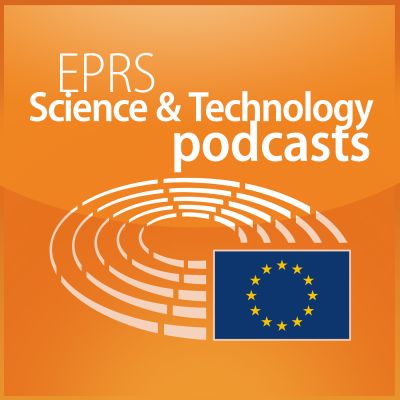http://www.w3.org/2005/Atom
https://www.europarl.europa.eu/thinktank/en/audio-podcasts
Gesamtlänge aller Episoden: 5 hours 36 minutes
What if nature taught us to adapt to climate change?
Over the past 3.8 billion years, nature has been engineering itself to survive. It has also developed efficient and sustainable adaptation mechanisms against changing environmental conditions. To further the EU's political ambitions, could we employ biomimicry to mitigate climate change and achieve climate neutrality?
What if increased energy storage could help fix climate change?
In this podcast we explore the potential ecological benefits of increasing our capacity to store energy, especially from renewable sources. As the availability of some renewable energy sources is variable and intermittent, devising new energy storage capacities could ensure energy security and reliability and help the EU in its efforts to achieve climate neutrality by 2050.
Towards a new EU pharmaceutical strategy
As the European Commission prepares to launch a much awaited revised EU pharmaceutical strategy, two recent studies by the European Parliament's Panel for the Future of Science and Technology (STOA) advance possible options to tackle current weaknesses in drug development and ensure access to high-quality medicines, including the creation of large-scale European biomedical infrastructure, and a series of targeted strategies to improve EU health research coordination and reprioritise areas...
What if we grew plants vertically?
By 2050, an estimated two thirds of the world population will live in urban areas. Could vertical farming help feed this growing urban population sustainably by reducing the demand for agricultural land and shortening the travel distance between food production and consumption?
Using artificial intelligence in workplace management
As AI spreads into workplaces, workers and employers are increasingly confronted with applications and software that affect labour relations. While AI systems could be introduced with the explicit aim of improving working conditions, this cannot be expected in general and evidence suggests that it may be the exception...
What if quantum technologies were to revolutionise healthcare?
Quantum technologies could be a game-changer in the digital transformation of health care. By enabling much faster and more complex data analysis, they could open the door to the accelerated discovery and development of novel therapeutics, improved diagnostics and treatments, including for rare and complex diseases, genuinely personalised medicine, and better data-driven health policy planning...
What if a 'Trojan horse' strategy could help address antimicrobial resistance?
Antimicrobial-resistant infections are predicted to become the second biggest cause of death worldwide by 2050. Despite increasing investment in the development of new antimicrobials, awareness campaigns on antimicrobial misuse and abuse, and monitoring of antimicrobial use and resistance in animals, humans and the environment, antimicrobial resistance continues to grow and the last three decades have not seen even one novel antimicrobial class reach the market...
What if everyone spoke the same language?
One language disappears every two weeks, and up to 90 % of existing languages could be gone by the turn of the century. Globalisation, social and economic pressures and political options can determine whether a language survives. Multilingualism is a cornerstone of the European project, with 24 official and 60 minority languages. In a digital era, ensuring digital language equality can help preserve linguistic diversity.
What if AI could make the agri-food sector more resilient?
Artificial intelligence (AI) has been under the limelight of so strong political and social debate that its suitability for its main original purpose of improving supply chain efficiency may come up as a surprise; but, what if, under the actual situation of stress artificial intelligence really can provide solutions for strategic sectors significantly improving their capacity to cope with pressure? More specifically, can the agri-food sector benefit from this technology to the extent of...
What if microbial protein could help reverse climate change?
Demographic, socio-political and economic pressures have made eating meat an unsustainable practice for the long term. However, meat substitutes have proved unpopular, owing to social norms and a lack of trust; some alternatives also contribute heavily to climate change. Could microbial protein be a sustainable alternative to meat that not only solves these multidimensional pressures but also contributes actively to reversing climate change?
